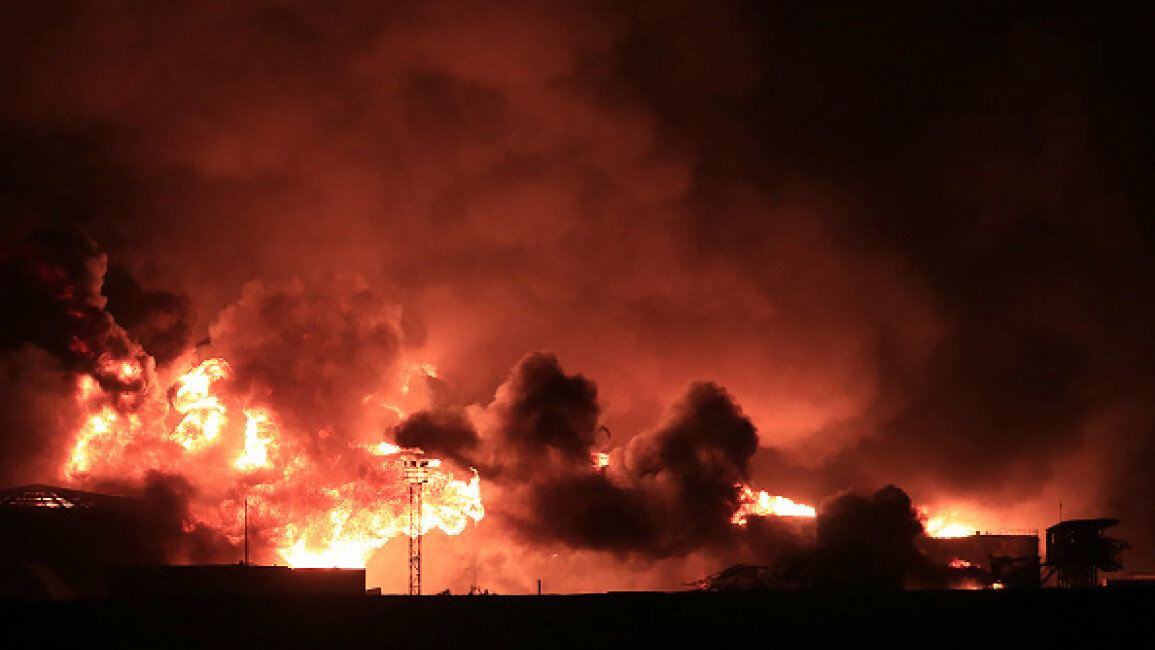MENA and the unstable balance of the world of politics

TEHRAN - In the current multipolar world, there may not be a region as unstable as MENA.
Of course, this is partly due to the West's unstable balance in the world transitioning from unipolar to multipolar, and partly due to the dynamics of internal developments in the MENA region. In such situations, new forces, however small, can steer the mainstream in completely unknown directions that no one could have anticipated. Therefore, understanding the dynamics of the existing world, having a perspective of the future, and taking the right action, with the capacity of global synergy based on a new lifestyle and more importantly, timely action, will play a conclusive role in guiding global developments. Indeed in this situation, hard power will not play the decisive role it played in the past, and soft power based on a return to the past, such as the branched movements of the Muslim Brotherhood in the MENA region, will not have affirmative results and might cause more destruction. The Islamic world needs a new thought and dynamism based on a new understanding of monotheism and polytheism in the post-modern world and under the new philosophy of life. The world is moving on a razor's edge. Let's see which way it leans.
Israeli Prime Minister Netanyahu is said to have been applauded 79 times in the U.S. Congress. This is while the number of Palestinian casualties in Gaza has reached about 39,000 martyrs, and the number of the injured in Israeli criminal attacks has reached more than 200,000. And the number of displaced people represents a figure of more than 800,000 people. The war crimes, ethnic cleansing, and apartheid discrimination committed by Netanyahu and his accomplices have been documented at the International Criminal Court and preliminary convictions have been issued. The all-out encouragement and support for such a criminal regime is not acceptable to any awakened human conscience anywhere in the world. And this is not an honor for Congress or the American people. Of course, in the past months, the world has witnessed a social upsurge of human conscience in universities and civil society in the United States, Europe, and other continents. Moreover, many governments on different continents have also openly expressed their disgust with Israel's behavior. Undoubtedly, the reliance of Netanyahu and his allies on the spear is not going to end, and there is no end to the downfall. This is the greatest indication of the unstable equilibrium of the prevailing mainstream in the world of politics. History has shown that sooner or later the forces of repression surrender to the social force.
Since the foundation of Israel, the West, initially led by Britain and then the United States, continuously and relentlessly tried to normalize Israel's existence through a series of encouraging and punitive measures to the nations and governments of the MENA region. The success rate of these measures was very low at the level of nations, and at the level of some governments, it proceeded in a shaky state with thousands of fears and tremors. The radical policies of someone like Trump, the Abraham Accords, were also almost shattered by the October 7 operation. This shows that the security-oriented faction in the MENA region has not yet reached a stable state of equilibrium, and there is the possibility of the formation of various security and uncertainty arrangements in the region. It all depends on what development process can draw and guarantee better-off for the region’s nations.
political and social movements in the MENA region also have their own dynamics. From modern liberal streams to leftist currents, as well as a variety of Islamic currents branching off from the Muslim Brotherhood with different operational approaches, from socio-cultural and political tendencies to terrorist and suicide attacks such as ISIS, one can see. Traditional authoritarian structures also have their own diehards. All of this indicates that the MENA region has not yet reached peace in the modern world, and external interference is adding to its unrest. And there is still no clear prospect for the nations of the region.
Within the 20th Century, the Western world first created a fruitful dynamic in the world with the establishment of the League of Nations and then the United Nations and the adoption of the Declaration of Human Rights. Of course, liberal philosophy and the transition from a Mercantilist economy to a Free-Market economy were the intellectual basis for this movement. Now, it seems that the West's retrogression and the re-creation of Mercantilism, especially with the rise of currents such as Trump’s America First, has put the Western world in an unstable state of equilibrium. It seems that the way the Western world confronted Israel's crimes was a turning point in social and intellectual currents there. The Westerners' rethinking of the fundamental values of Western civilization goes beyond the stances of politicians, parties, and social movements. Therefore, this pen is waiting for the emergence of transformational ideas in the Western world and its periphery. What we see from China so far is their focus on the very idea of China as the world factory, and we see less of a universal thought on their part. There is also no news from Russia. But in the MENA region, there are many dynamics. Civilization-oriented factions that are based on the creation of new ideas are the most promising intellectual movements. Concurrently, self-destructive Salafi and Kharijite currents can also be seen in the Islamic world.
Abbas Akhoundi is the former minister of roads and urban development of Iran.

Leave a Comment